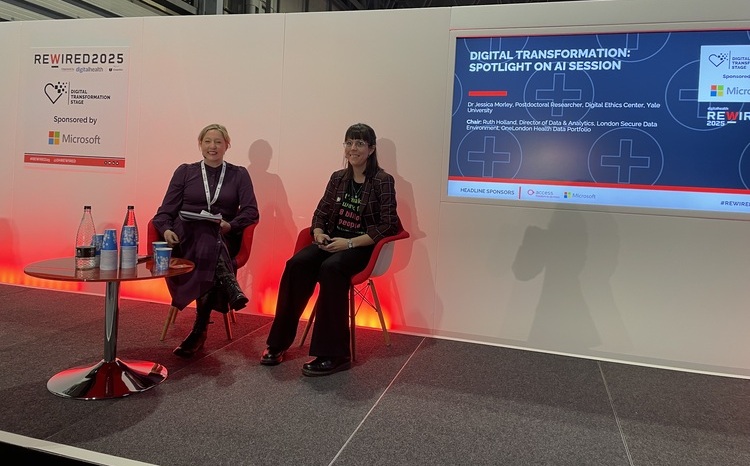AI platform for arthritis detection secures £1.2m grant
- 7 October 2024

- A team led by Henley Business School, University of Reading, has been awarded a £1.2m grant to develop AI that improves early detection and referral of rheumatic and musculoskeletal diseases (RMD)
- The AI system, RMD-Health, is being piloted at Royal Berkshire and Oxford University NHS Foundation Trusts as part of a three year project
- Funded in part by NIHR, the pilot project will fully develop the product ready for regulatory approval and commercialisation
Henley Business School has been awarded a grant of £1.2 million for the development of a machine learning system to improve the early detection and referral of rheumatic and musculoskeletal diseases (RMD).
A pilot of the AI system, called RMD-Health, is planned to take place at Royal Berkshire NHS Foundation Trust and Oxford University Hospitals NHS Foundation Trust in 2026-2027, to develop the product for regulatory approval and commercialisation.
Funding has been provided by the National Institute for Health and Care Research (NIHR), the Engineering and Physical Sciences Research Council, the Health Innovation Partnership, and Henley Business School.
RMD, which includes diseases such as inflammatory arthritis, affects up to one-third of the UK population and is a leading cause of disability.
Professor Weizi (Vicky) Li, project lead and professor of informatics and digital health at Henley Business School, said: “With an estimated annual cost of £1.8 billion in sick leave and work-related disability for rheumatoid arthritis alone, the current RMD referral system faces huge challenges.
“Our machine-learning system presents a new approach to RMD referrals.
“Unlike existing solutions, which often rely on the advice and guidance from already stretched rheumatology specialists, we’re introducing a machine learning-based decision support system enabling doctors to refer patients more accurately and promptly, ultimately leading to quicker and more effective treatment”.
Delays in accessing referrals for RMD contribute to delayed patient access to the right clinics and treatments and often result in repeated GP consultations.
With only 40% accuracy in suspected early inflammatory arthritis referrals by GPs between 2019 and 2021, significant burden is placed on secondary care clinicians who must sift through large volumes of referrals and attend unnecessary appointments.
Dr Antoni Chan, project co-lead and consultant rheumatologist and physician at Royal Berkshire NHS FT, said: “This exciting and innovative project represents a major step forward in the early detection and referral of RMD, promising improved patient outcomes, reduced healthcare costs and increased efficiency across our healthcare system”.
He added that the tool has demonstrated “significantly higher accuracy” than existing clinical criteria and clinicians’ assessments, during experiments at the trust.
“With this grant, we fully expect to be on track for regulatory approval at the end of three years,” Dr Chan said.
AI experts, secondary care specialists, GPs, industry stakeholders, patients and the public are collaborating to develop a full software prototype, which will establish future adoption of RMD-Health into the NHS.
The project is being led by Henley Business School, part of the University of Reading, in partnership with Royal Berkshire NHS Foundation Trust, RBFT Health Data Institute, Oxford University Hospitals NHS FT, Health Innovation Oxford and Thames Valley, Buckinghamshire, Oxfordshire and Berkshire West Integrated Care Board and patient leaders.
Meanwhile, it was announced in June 2024, Flok Health, an AI-powered physio clinic for people with musculoskeletal problems, would be rolled out in the NHS by autumn 2024, with the aim of cutting physiotherapy waiting lists.





